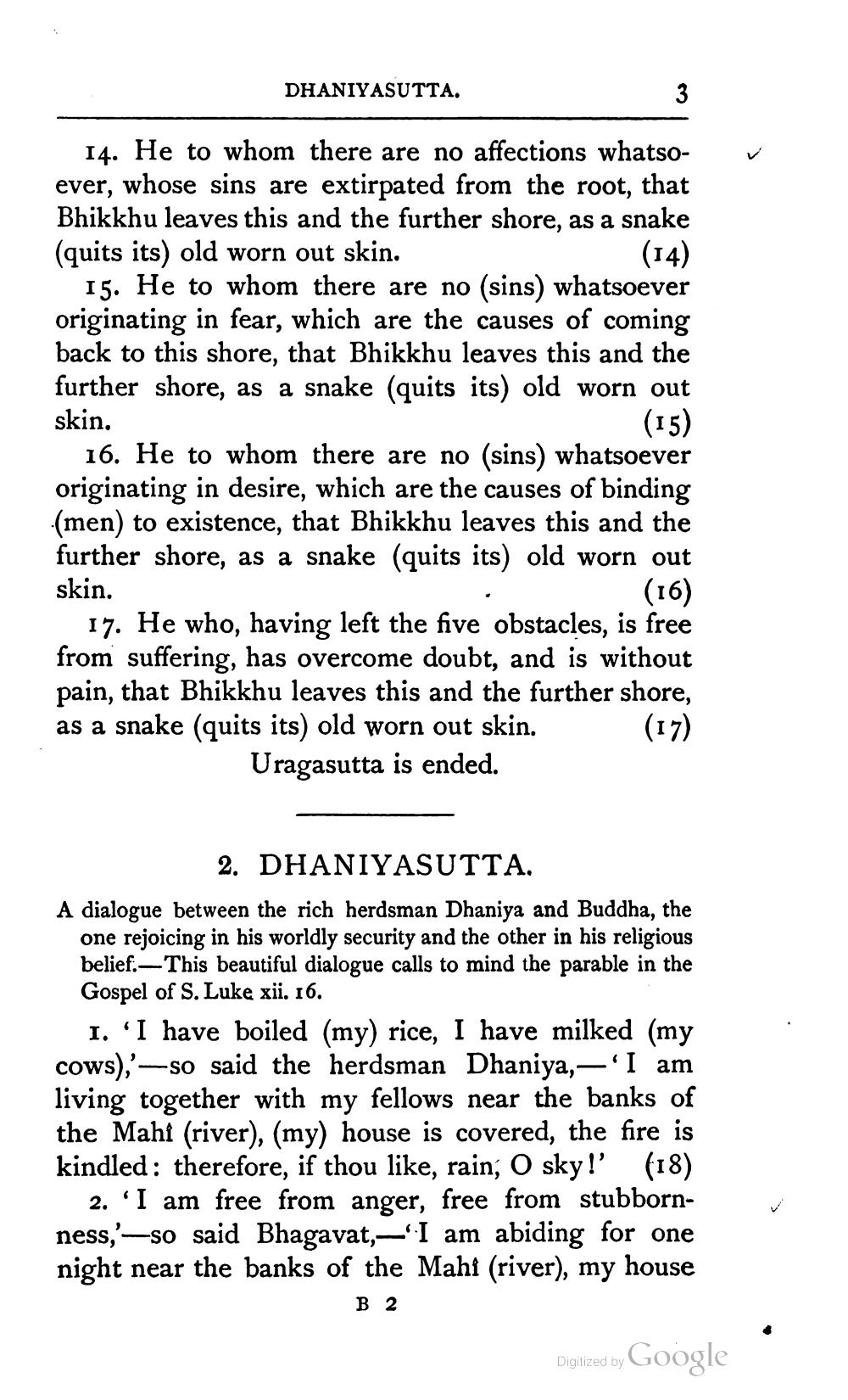________________
DHANIYASUTTA.
14. He to whom there are no affections whatsoever, whose sins are extirpated from the root, that Bhikkhu leaves this and the further shore, as a snake (quits its) old worn out skin.
1 (14) 15. He to whom there are no (sins) whatsoever originating in fear, which are the causes of coming back to this shore, that Bhikkhu leaves this and the further shore, as a snake (quits its) old worn out skin.
1. (15) 16. He to whom there are no (sins) whatsoever originating in desire, which are the causes of binding .(men) to existence, that Bhikkhu leaves this and the further shore, as a snake (quits its) old worn out skin.
(16) 17. He who, having left the five obstacles, is free from suffering, has overcome doubt, and is without pain, that Bhikkhu leaves this and the further shore, as a snake (quits its) old worn out skin. (17)
Uragasutta is ended.
2. DHANIYASUTTA. A dialogue between the rich herdsman Dhaniya and Buddha, the
one rejoicing in his worldly security and the other in his religious belief.— This beautiful dialogue calls to mind the parable in the Gospel of S. Luke xii. 16.
1. 'I have boiled (my) rice, I have milked (my cows),' —so said the herdsman Dhaniya,—'I am living together with my fellows near the banks of the Maht (river), (my) house is covered, the fire is kindled: therefore, if thou like, rain, O sky!' (18)
2. 'I am free from anger, free from stubbornness,'—so said Bhagavat,—'I am abiding for one night near the banks of the Mahi (river), my house
B 2
Digitized by Google




